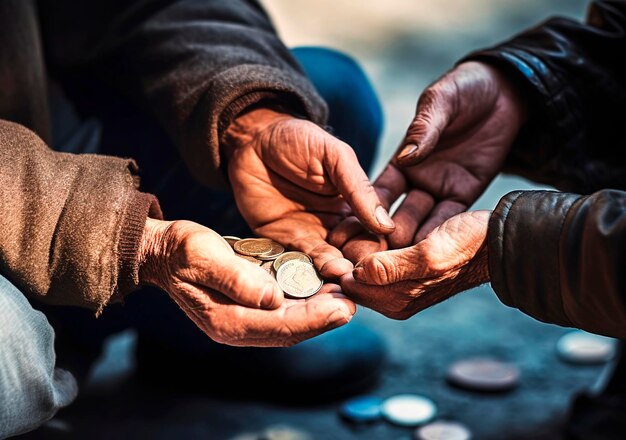The International Day for the Eradication of Poverty, officially recognized by the United Nations General Assembly in 1992, serves as a powerful reminder of the global commitment to combat poverty. Every year on October 17, people around the world unite to reflect on the causes of poverty and the steps necessary to alleviate it. This day is a call to action, reminding the world that poverty is not just a matter of economic deprivation but also deeply rooted in social and institutional inequalities.
2024 Theme: “Ending Social and Institutional Maltreatment: Acting Together for Just, Peaceful, and Inclusive Societies”
This year’s theme, “Ending Social and Institutional Maltreatment: Acting Together for Just, Peaceful, and Inclusive Societies,” highlights the pressing need to address systemic maltreatment and inequality that perpetuate poverty. These injustices often occur within both social structures and institutions, disproportionately affecting marginalized communities, including women, children, and minority groups.
The theme emphasizes that poverty eradication cannot be separated from broader societal issues such as injustice, discrimination, and social exclusion. It calls for collaborative efforts at all levels—from grassroots organizations to international bodies—to create systems that are not only inclusive but also capable of fostering peace and justice. Such collaboration is key to dismantling barriers that prevent individuals from accessing basic rights and opportunities.
A Global Responsibility
The global fight against poverty requires collective responsibility. Governments, non-governmental organizations, private sector leaders, and everyday citizens all play crucial roles in this endeavor. Poverty is a multifaceted issue, often driven by a combination of lack of access to education, healthcare, employment opportunities, and discrimination. To effectively tackle it, coordinated action is essential, ensuring that policies and interventions are designed to benefit those who need it most.
One key aspect of this year’s theme is the call to eliminate institutional maltreatment, which refers to unfair practices embedded in systems of governance, law enforcement, and the economy. These practices often marginalize the poor and hinder their ability to improve their circumstances. By addressing such systemic issues, societies can create a more equitable environment in which all individuals have the opportunity to thrive.
Building Inclusive Societies
The theme also highlights the importance of inclusivity. Societies that are inclusive allow for the participation of all individuals, regardless of their socio-economic status, gender, race, or background. This inclusivity is essential for fostering peace and social cohesion, which are critical elements in the long-term eradication of poverty.
Inclusion is not just a moral obligation but also an economic imperative. When marginalized groups are empowered and included in decision-making processes, economies grow, and communities become more resilient. Ensuring access to education, healthcare, and economic opportunities for all citizens is one of the most effective ways to break the cycle of poverty.
Acting Together for a Poverty-Free World
The International Day for the Eradication of Poverty reminds us that poverty is not inevitable. It is a problem that can be solved with dedication, cooperation, and a commitment to justice. This year’s theme calls on all of us to act together—governments, organizations, and individuals alike—to create a just, peaceful, and inclusive world. The fight against poverty is far from over, but by addressing the social and institutional maltreatment that perpetuates inequality, we can make significant strides toward a future free from poverty.
Let this day inspire us to reaffirm our commitment to the global fight against poverty, ensuring that no one is left behind.










